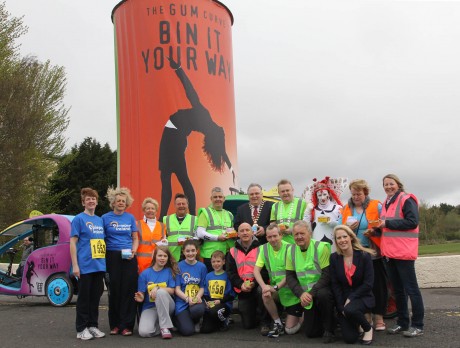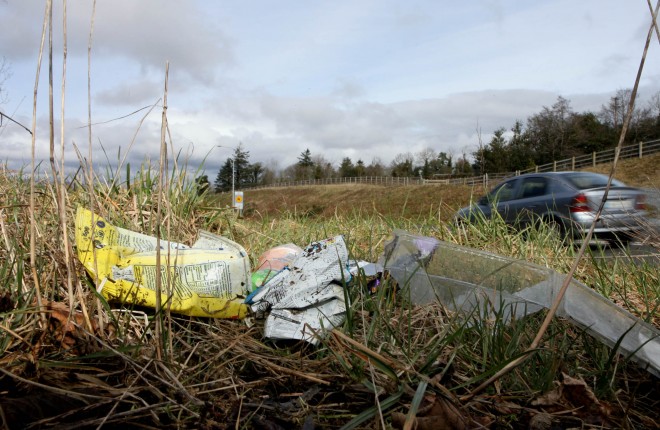
LETTERKENNY is clean to European norms, but has dropped in the rankings, according to the most recent Irish Business Against Litter, survey published today.
This latest survey IBAL shows that Letterkenny is “Clean to European Norms”, but has dropped to 29th position in the ranking of 40 areas surveyed. Letterkenny was previously in 11th spot. In all, 75 per cent of towns and cities were found to be as clean as or cleaner than their European counterparts.
Kilkenny and Cavan were once again Ireland’s cleanest towns, and were among 18 towns to be deemed cleaner than the European average. Letterkenny was previously in this category.
An Taisce reported: “Following an improvement in recent years, Letterkenny has just held on to its Clean to European Norms status. Half of the sites surveyed got the top litter grade and some were particularly good e.g. Lower Main Street had attractive flagstones and nice street furnishings and Market Square was in very good order with bright visitor information notices.
“The Recycle Facility at Letterkenny Public Services Centre just missed getting the top litter grade. By far the most heavily littered site was the derelict site opposite Fortwell Place which has suffered neglect and abuse.”
For the first time, IBAL inspected the cleanliness of connecting routes between towns, which were found to be typically more littered than the towns themselves. An Taisce reported that the Letterkenny-Lifford Road was “spoiled by a steady trickle of cans and plastic bottles in the hedges and roadsides, mostly on the left hand side of the road as you drive from Lifford to Letterkenny. Some parts of the road are litter free.”
“The positive impression that our clean towns create for visitors is all too quickly undone if they encounter litter when departing them. It is a natural evolution of IBAL’s survey that these routes be monitored,” says Conor Horgan.
The survey showed that while towns are getting cleaner, urban areas remain littered. IBAL contends that residents associations, tidy towns groups and other volunteers are compensating for the scarcity of resources in local authorities in many towns, whereas these groups are often absent in city areas.
“A single tidy towns committee can make an enormous difference to the cleanliness of any given town. In cities, communities tend to be less cohesive and relying on volunteers to clean up a large urban area is not feasible. However, establishing such groups has to be part of any urban authority’s plan in the current cost environment. It’s not just the physical work these groups carry out, it’s the sense of responsibility they create, which rubs off on the whole community. If people see their neighbours picking up litter, they are less likely to litter themselves,” Mr Horgan said.
Alongside the need for councils to set up such local groups, IBAL is calling on Government to show similar initiative by involving businesses through a nationally co-ordinated Adopt A Road scheme.
The survey found that sweet papers were by far the most common form of litter, followed by cigarette butts, fast food wrappers and chewing gum. Most recycling areas were littered, with car parks and residential areas also more likely to be littered than other sites.
“Be it in cities or in towns, we enjoy a much cleaner environment than 15 years ago, but litter...










